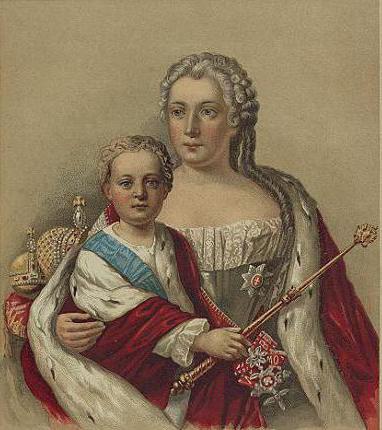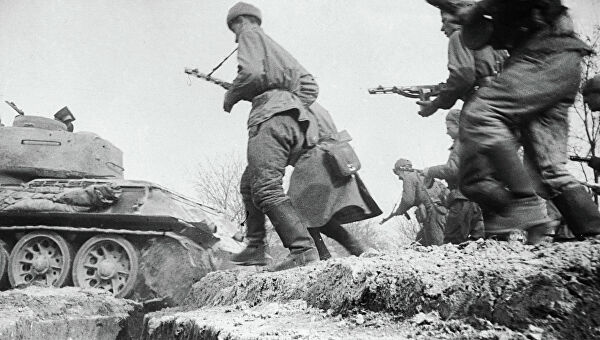Age 10 years psychology. "Bolsheketskaya high school"
At different stages of growing up child it is necessary to apply various techniques to ensure the intellectual development and psychological comfort of the baby. What is characterized by the age of 10-15 years? At this age, the child goes through a difficult stage - puberty, which can affect school performance and relationships with parents and peers.
Course teachers and classy supervisor They are aware of these features and must make every effort to complete this stage as successfully and comfortably as possible, but parents play an important role here as well. If you want your son or daughter to be able to correctly express their thoughts, find a common language with the opposite sex and do well in school subjects, devote time to them and very quickly notice the positive dynamics. An important role in the development of a child is played by his self-esteem and ability to defend his own point of view and opinion, it is worth remembering this.
At 10-15 years old child he still cannot fully control his own desires and requirements for the world around him, so you will need to demonstrate to him through life examples that in order to achieve the goal you need to work long and hard. It is at this age that a child enters adulthood and learns to be independent and achieve goals.
Psychologists and child psychiatrists They say that children are the most trained at preschool age, but in high school it is also necessary to pay attention to the child's performance, to direct and help. If you step aside from the features of his training and ability to some subjects, you can even ruin the creative person or future scientist. The role of parents should always be clearly manifested in the self-realization and development of the child. Be sure to direct all your efforts in order to educate a decent, intelligent and well-educated subject of society, because in 10-15 years you can still correct some features of behavior and habits.
Be sure to follow the following recommendations specialists in the field and sociology, in order to correctly approach the education of a child of 10-15 years old.
- Learn how to properly encourage your child. In this matter, many parents "go too far", because sometimes it is difficult to understand where praise is needed, and where you can do without it, so as not to cause pride and narcissism in the child. Do not forget that a child, whose success parents do not show absolutely no interest in, can completely despair and lose confidence.
Always cheer on your student if he has shown success in something or just got a good grade at school. Your praise and encouragement should also extend to his life outside the school. It is at this age that it is worth instilling a child’s love for work. Make it as clear as possible to the child that parents need help, because it is so important for them. Come up with an incentive for washing dishes or helping your grandmother and grandfather in the country so that from this age he understands that the reward goes to work.

- Watch carefully who your child is taking as an example and who is in the classroom. Unfortunately, far from always the leadership qualities of one of the children can favorably influence others. Sometimes it makes you want to compete in school or in interesting hobbies, but sometimes it’s just a bad example for your daughter or son, so always pay attention to your kid’s idols. It also happens that the idol is a public person, which in turn is easier to check and timely point out the shortcomings of the person whom the child wants to be like. Of course, aggression will be the first reaction of a young teenager, but your words will be firmly deposited in his subconscious, and after a while he will rethink everything.
- Do not forget about sexual culture. At this age, it is worth starting to tell the child not only about how adults show love for each other, but also about how to protect themselves and what promiscuous sexual relations can lead to. Psychologists have proven that children with whom parents do not talk about sexuality are more likely to have early sex and to have an unplanned pregnancy. From the age of 10, you can tell your child that he will soon become an adult in all plans, that he will begin puberty, and this should not be afraid. Very often, children read information on the Internet, which can be distorted, and are a little afraid of what changes are happening with their body. Your task will be to prepare the child for this difficult stage in their life, because yesterday your daughter or son was concentrated on toys and children's fun, and today is already on the way to growing up and entering adulthood.
- Teach your child to say no. This advice seems trivial, but in fact it is very important for adulthood. Trouble-free children are often used by mercenary classmates, which leads to a decrease in the performance of your baby and gives him self-doubt. The child is embarrassed and cannot refuse because of his gentleness, while the other will take advantage of this in time and get his own benefit. Tell the child that he should think first of all about his interests, and only then help others. It is very important to instill in a teenager a desire to defend his opinion and clearly maintain his position. Practice this technique at home to give a case in point.
- Warn baby that he is in danger in adulthood and that he must learn to be careful with unknown people and even classmates. Unfortunately, there are times when a child is forced into sex at the very same age of 13-15. You need to explain this to your baby and warn him. Parents should spend a lot of time raising their children so that they are ready for adulthood in all its manifestations.
- Try to identifywhat your child wants to do in the future, what he is fond of and what he has a penchant for. At 10-15 years old, it is already worth starting to think about what university to enter. High school is the preparation of the child for study at the institute, so it is so important to direct all efforts at the right time to improve the knowledge of your baby. Be sure to communicate with the class teacher, because he is well aware of your child's talents and performance. There are children who at this age know exactly who they want to be, but there are those with whom you need to talk, consult and come to a definite decision. At this age, the future of the child depends on the parents, so do not let everything drift, take an active part in the life of your baby.
Many parents notice how is changing their child is 10 years old, at what rate is growing and is developing. Especially the girls. What can I say - this is the first stage of puberty.
Physiological features
At 10 years old, the child is stretched, height its average is 134 - 140 cm, the weight 34 - 36 kg.
Going on hormonal organism change. Girls develop faster than boys body some of them change: the breast is formed, the hips are rounded. It leads to embarrassment and embarrassment.
Finish changing teeth. As a rule, all dairy products fell out, and indigenous ones grew in their place. Every six months should be visited the dentist for the prevention of caries and irregular tooth growth.
Psychological and mental development of preteen
Primary activity - training. But in addition to complete immersion in school, more and more children are drawn to communicate with peers.
Kids already have a lot understand and can explain. And communication with people begins to build "in an adult way." More compete with each other in power, wit, clothes, accessories and more.
The children's team already has leaders, there are outcasts, internal interest groups have developed. Opinion buddies are very important. The child is increasingly moving away from his parents, he wants to be an adult, but you can negotiate with him, to talkHe still needs parental advice.
Many psychologists believe that the emergence of "adulthood" is an important step in the development of the personality of a child of primary school age.
The indicators of occurrence of "adulthood"
- The child wants to be treated like an adult.
- The child wants to fulfill the assignment on his own, as an adult (for example, to go shopping himself).
- He hides some personal affairs, conversations. He doesn’t want adults to interfere.
- He is trying to defend his own position.
Parents need
- Talk with your child on a variety of topics, including about safety on the street, at home, about the dangers of smoking, alcohol and psychoactive substances, as well as sexual maturation and relationships with the opposite sex.
- Control study and extracurricular activities: visiting circles and sections.
- Know children and, preferably, families of children with whom the child is friends and walks.
- Show private example.
- Identify homework duties child (e.g. taking out the trash, cleaning his room).
- Keep track of food child and sleep (at least 9-10 hours).
- Limit watching TV shows, films, computer games, and also control visits and communication on the Internet.

Children develop very quickly, even rapidly.
This is especially noticeable in the first years of life. Younger schoolchildren also grow by leaps and bounds. Although, not all children 6-7 years old are characterized by rapid growth: some will take a slower pace.
Physiological development
Child 6 years old
At this age, children lose fat and gain more muscle. From the first grade, they begin to look like lanky teenagers. It is set correct when driving. Over the previous year, the child grew by 6-7 cm, his body weight increased by 2.5-3 kg. The norm for this age is an increase of 107-121 cm, weight - 18-28 kg. Chest circumference - 56-65 cm.
Child 7 years old
Now children have well-developed motor skills, speech is becoming connected. Your younger student can easily convey their thoughts and impressions, reading and writing are given to him quite easily. The child’s lung tissue structure is still forming, so after seven years a variety of bronchitis and pneumonia in children are less common.
In boys at the age of 7, a slight prepubertal enlargement of the testicles is observed. The structure of the liver is approaching an adult, and by the age of eight it will become identical. The norm of development is considered to be growth by seven years another 8-10 cm. The circumference of the chest increases by 2-2.5 cm. Growth rates: 114-128 cm, weight - 20-30 kg.
Child 8 years old
From the age of 8, the child begins to form a complex coordination mechanism for controlling movements, in other words, coordination is slowly improving. The student has an increased ability for long-term dynamic work. The increase in working capacity, physical capabilities and, in general, an increase in the aerobic capacity of the body - this is what is happening with the child’s body.
There are no cardinal changes that accompany puberty. Norms of growth: 119-134 cm, weight - 21-32 kg.
Child 9 years old
Nine-year-old children are on the verge of adolescence, and in the next few years their physical development will undergo strong changes. Therefore, parents need to prepare their younger offsprings in advance, talking with them about the upcoming changes.
Peers at this age can vary greatly in height and weight. On average, children grow up to 125-140 cm, their weight is 24-36 kg.
Child 10 years old
At this age, some children (usually girls) begin to develop sexual characteristics. Hips become rounder, breast growth begins, the first menstruation (do not be surprised - modern girls grow up earlier than you and I in due time). In just a year, a child can become noticeably taller and wider. Girls begin to develop more rapidly than boys. If due to their height or weight, parents need to calm him down and explain why this happens.
The average height at this age is 129-146 cm, weight - 25-39 kg.
The formula for calculating physical data
Use the formula to calculate the weight: weight (kg) \u003d 10 + (2 x P)where:
- 10 kg - the average weight of the child in 1 year (you take as the basis the weight of your child);
- 2 kg - the average annual weight gain;
- P is the number of years.
For example, if the child is 8 years old. Then its average normal weight should be equal to: 10 + (2 x 8) \u003d 26 kg.
The growth of the child is determined by this formula : height (cm) \u003d 75 + (5 x P)where:
- 75 cm - the average height of a child at the age of 1 year (you can take the weight of your child as a basis);
- 5 cm - the average annual increase in growth;
- P is the number of years.
If the child is 10 years old, then his average normal growth should be equal to: 75 + (5 x 10) \u003d 125 cm.
This wonderful and difficult age is 10-11 years.
The fourth year of elementary school completes the first stage of the child's school life. Fourth graders are elementary school graduates. This is a very difficult age. Psychologists distinguish the age of 7-10 years as the primary school, and 11-15 years as teenage. Thus, the age of 10-11 is as if in limbo, that is, the child is not yet a teenager, but he is no longer a younger schoolboy. Everything is mixed here, and therefore girls, and then boys, become partially uncontrollable, which is typical for adolescents, and on the other hand, 10-11-year-old children are extremely plastic, ready for change and open to cooperation.
A key event in the psychophysical development of 10–11 years of age is puberty. From this point of view, our fourth graders are undoubtedly teenagers. This greatly affects their behavior - rebellion, conflict is manifested. Local-capricious scientists call this first stage of the teenage period. Negative manifestations in home behavior sharply amplify, for example, rudeness in relation to mother, and at the same time outside of the family - good manners and goodwill. At school, this is unevenness in zeal, a low level of attentiveness, great distractability, and forgetfulness. Children of this age are characterized by extreme emotional instability due to physiology - the growth and development rates of various functional systems of the body are mismatched. There is a replacement of educational activity as a leading one (which was typical for a younger student) with a leading activity - communication.
Unfortunately, we adults often miss this age and do not become friends with our children. Subsequently, many parents pay for this with the most acute social problems of mature adolescence: a high pregnancy rate of 14-15 year old girls, the rise of juvenile delinquency, drug addiction, teenage suicide. Scientists trace the germs of these negative manifestations and find them precisely at the age of 10. That is why now we need to be especially attentive to our children.
Dependence on the company of peers sharply increases. This is especially true for those children whose parents are too authoritarian, or, conversely, unnecessarily condescending to negative manifestations in the behavior of their child.
This period is easier in families where warm relations reign, where the child feels the love of all loved ones combined with benevolent exactingness. There are traditions in such families, everyone knows their simple duties and will always come to the rescue.
Children are easily influenced by other people, especially older adolescents, in order to appear to be adults themselves. Therefore, parents should strive to become a child's friend, so that your teenager from the gateway does not take your place. Talk to your child as often as possible. Teach him that in case of any troubles, no matter what happens to him, you have to run home. Here and only here they will help you, save, understand and regret. Write notes to each other with funny words, and not just “wash the dishes, sweep, take out the trash, etc.” Actively listen to the child, ask again, that is, express your interest in his problems. Remember the individual names, events, and details that the child tells you about. Use them later to start detailed conversations about the school. He sits at the computer all day - ask to learn to play you too. Try to chat with him in his language, and then quietly from the games go to the really important and necessary.
Try to resolve all conflicts peacefully. No need to quarrel. Most often, parents are annoyed that the child can not restrain himself. But he really can’t! He does not have a physiological basis for this, especially among boys. The boys form an active will, which is based on the processes of excitement and moves them to search for new sensations, impressions, and experience. Girls are more restrained, as they have better developed inhibition processes. Therefore, we will take into account the physiology of our child, and first we will count to ten, and then we will begin the “debriefing”. Of course, punishment is an integral part of education. But this is not revenge for the fact that the child dared to disobey me. Punishment is a mandate, and therefore, it is necessary to explain, and maybe even show how to act. It is necessary to demonstrate that punishment is a parental duty: “It’s hard for me to punish you, but I have to.” Punishment is a deprivation of pleasure. But the most difficult thing is the deprivation of communication. Ignore the child very carefully, it can seriously injure some children. But in any case, remain a child friend. Tell him about your experiences at this age. Try to speak frankly on the most sensitive topics. Be open to talking with your child. Even if you don’t know or don’t understand something, feel free to tell him about it.
Do not use expressions:
I told you a thousand times ...
How many times do you need to repeat!
What are you just thinking!
You are the same as yours ... - Leave me alone, once to me!
Why is Lena like that, and you ...
It is advisable to say:
You are my smartest (beautiful).
How good that I have you!
You have done well!
I love you very much.
How well you did it! Teach me.
Thank you. I'm very grateful to you.
If not for you, I would never have dealt with this.
Idleness is the enemy of childhood. It is bad if the child is left to himself for days on end. Try to have your children attend a music school or sports section, or some other extra circles. Firstly, this is the development of intelligence, and secondly, this is the development of the volitional sphere - organization, will, observance of the daily regimen. A child can be immersed in such activities that will allow him to show his courage, achieve success, gain confidence in himself. Back in the old days it was said that "the business time gives reason, but idleness creeps into my head." One who passively rests, openly loafing, subsequently pays for the decline in his intelligence.
The difficulty of 10-11 years of age is exacerbated by the fact that children will begin a new stage of life - the transition to the middle link. Several teachers instead of one, and each has its own character, its own requirements, its own approach to business. The pace of work is increasing, requirements for the design of work are changing, new children are appearing, another study room - everything is new. The help and attention of parents at this time is especially important. Meet new teachers. You should know your child’s teachers, not only by sight, but also by first name and patronymic, just as they are of you. At the same time, try so that when they see you, they smile, and do not whiten their faces from anger. Seek teacher advice if a problem occurs. For teens, a teacher is no longer an indisputable authority. Critical remarks may be made to the teacher (“harmful historian”). It is important to discuss the causes of dissatisfaction while maintaining the authority of the teacher. Pay attention to any changes in the behavior of the child.
Most schoolchildren are differentiating their educational interests, and there is a different attitude towards academic subjects - some disciplines are more like, others are less. The preference of one or another educational subject is largely due to the individual characteristics of the child. And if the child does not show any particular preferences? Psychological studies show that there are no capable children. Even if the student is not distinguished by his academic successes and, at first glance, equally indifferent to all subjects, he certainly reveals a tendency to better master the educational material of one or another content. It is such inclinations that indicate the stronger aspects of the development of the child, and must be supported. Look for any opportunities so that the child can apply the knowledge gained at school to home activities. For example, calculate the required number of ingredients for preparing a dish, the footage of wallpaper, translate a recipe from the English dictionary, etc. He loves films - present the book on which the film was put. You look - and join in reading.
Despite the apparent adulthood, children need unobtrusive control from their parents, since they still can not always navigate the new requirements of school life. Be a child a friend - and you will succeed.
Education on the character of the child has a decisive influence. Only a study of the individual characteristics of the child will allow in the future to educate and re-educate his character and get the desired result. Raising a child of 10 years is a rather complicated process. Children at 10 years old are already carefully observing the life of their parents, analyze and try on all the actions of adults on themselves.
The main problems of youth education
The world for young people is sometimes quite complicated. A child of ten may have a friend, but relationships at school more often become competitive and difficult. More developed children may be influenced by friends from their social circle. Often children are deliberately fenced off from spending time together with their family. In the process of raising a child of 10 years, an adult must remember that at this age he begins to form both psychologically and physiologically. Children at this age spread their wings, and parents need to let them show their independence.
The main problem of educating young people is that at this age, children’s behavior deteriorates sharply. They are stubborn, pugnacious, intentionally show themselves from the worst side, show outright aggression. Children by all means try to show their independence, try to free themselves from the control and guardianship of adults. A huge influence on the formation of individuality in a given period has intrafamily relations.
When raising a child of 10 years, adults can feel the emotional cooling that manifests itself in the relationship of daughters with fathers, and sons with mothers. In single-parent families, all the forces of one parent are directed to the child. And this can cause emotional and psychological problems.
Ways to educate the character of a child of 10 years
A child of ten years old will be happy if adults consider him to be old enough to solve his own life problems.
However, the child will certainly not be able to fully organize life without the help of parents. Therefore, during a conversation with a child, an adult should find a solution that will suit everyone.
In the process of raising a child of 10 years, you can invite him to draw up a plan that will provide for the time necessary for hobbies, recreation, for school affairs and household chores.
 To educate the character of the child, it is advisable to distinguish two or three cases. He will follow up on these specific tasks, such as cleaning his room. However, do not overload the child, otherwise he will not cope with the task, and this will cause a storm of protest.
To educate the character of the child, it is advisable to distinguish two or three cases. He will follow up on these specific tasks, such as cleaning his room. However, do not overload the child, otherwise he will not cope with the task, and this will cause a storm of protest.
When raising a child of 10 years, you should not follow his every step, as at an earlier age. But during this period, close contact of parents with teachers, with the school, with the friends of their daughter or son is needed.
To achieve the desired behavior, it is important that the child himself wants this. If the child has a desire for change, you need to help him choose the right way to correct his behavior. At the same time, one must carefully monitor the successes of the son or daughter, and, if necessary, help him, encourage him, constantly maintain his desire to change, his faith in his own strength.
When parents in the process of raising a child of 10 years old allow him everything and do not mind him, then as a result a narcissistic, stubborn egoist can grow up who will not recognize any authorities.
At this age, children pay a lot of attention to their clothes, hairstyle. Therefore, it is very important during this period to instill in them a correct understanding of elegance. It is necessary to explain to the child that neatness, simplicity and the ability to choose clothes so that they perfectly emphasize individuality are the cornerstone of elegance.







